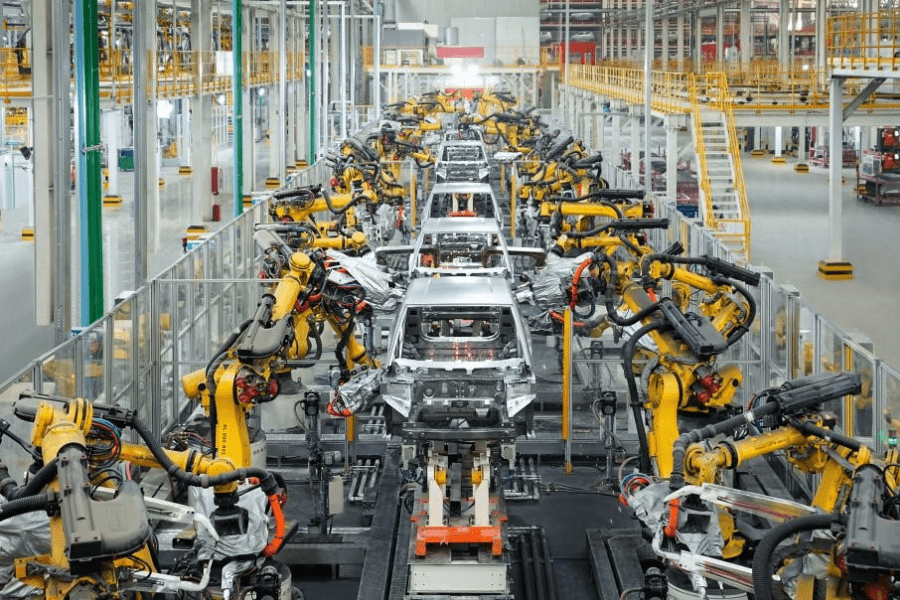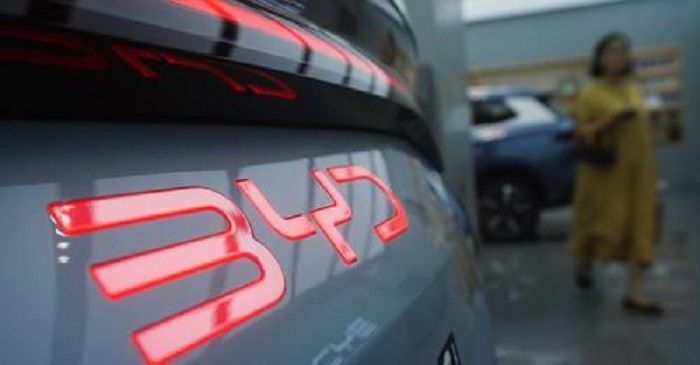BYD EXPANDS GLOBAL FOOTPRINT
Chinese electric vehicle (EV) manufacturer, BYD, recognised as the world’s largest EV producer, made a significant investment of $1 billion (TL 33.9 billion) in Turkiye in 2023. This strategic move is part of BYD’s broader expansion plan aimed at tapping into the rapidly growing electric vehicle market in Europe and the Middle East.
The investment includes the establishment of a state-of-the-art production facility in Turkiye, which will serve as a regional hub for manufacturing and distributing BYD’s electric vehicles. The new facility is expected to create thousands of jobs and boost Turkiye’s position as a key player in the global EV supply chain.
BYD’s entry into Turkiye marks a pivotal moment for the country’s automotive industry, which is transitioning towards sustainable energy solutions. The investment aligns with Turkiye’s ambitions to become a regional leader in electric vehicle production and innovation, supported by government incentives and a growing domestic market for eco-friendly transportation.
The plant, located in an industrial zone outside Istanbul, is projected to produce a wide range of BYD’s electric vehicles, including passenger cars, commercial vehicles and batteries. The facility will not only cater to the domestic market but will also serve as an export hub for surrounding regions, including Europe, the Middle East and North Africa.

Speaking at the inauguration of the project, BYD executives emphasized the strategic importance of Turkiye’s geographical location and its strong industrial base. “Turkiye offers an ideal gateway to both European and Middle Eastern markets, and this investment reflects our commitment to expanding our global presence while contributing to the growth of the EV sector in this region,” said a senior BYD official.
Turkiye’s Minister of Industry and Technology praised BYD’s investment, highlighting its potential to accelerate the country’s transition to green energy and boost economic growth. “This investment is a testament to Turkiye’s attractive business environment and its growing role in the global automotive industry. It will also contribute significantly to our efforts to reduce carbon emissions and promote sustainable development,” the Minister stated.
BYD’s investment is expected to have a transformative impact on Turkiye’s economy, spurring further investments in the EV sector and associated industries. The move also positions BYD to capitalise on the increasing demand for electric vehicles in Europe, where stricter emissions regulations are driving the shift away from traditional combustion engines.
With this significant investment, BYD is set to reinforce its status as the world’s leading manufacturer of new energy vehicles (NEV), while Turkiye solidifies its place as a key player in the green energy revolution.
On December 23, 2023 BYD also announced that the next stage of its European strategy would involve the building of a new electric vehicle (EV) and hybrid manufacturing plant and production centre in Szeged, Hungary. The state-of-the-art facility will be the first EV assembly plant to be built by a Chinese automotive company in Europe.
Hungary is an important base for the automobile industry and supply chains in Europe and BYD has chosen to make Hungary the centre of its European production operations. Situated in the heart of Europe, Hungary is an essential transportation hub and has a history of expertise in the automotive industry. With mature infrastructure and a well-established industrial foundation, Hungary has been chosen by several premium European brands as a production location for passenger car manufacturng.
On August 12, 2022, China’s largest battery manufacturer Contemporary Amperex Technology Co., Limited (CATL) announced it would invest €7.34 billion euros to build a 100 GWh battery plant in Debrecen, east Hungary. This is CATL’s second battery plant in Europe following a plant in Germany.
Source: Middle East Monitor, August 22, 2024. https://www.middleeastmonitor.com/20240822-china-ev…/
